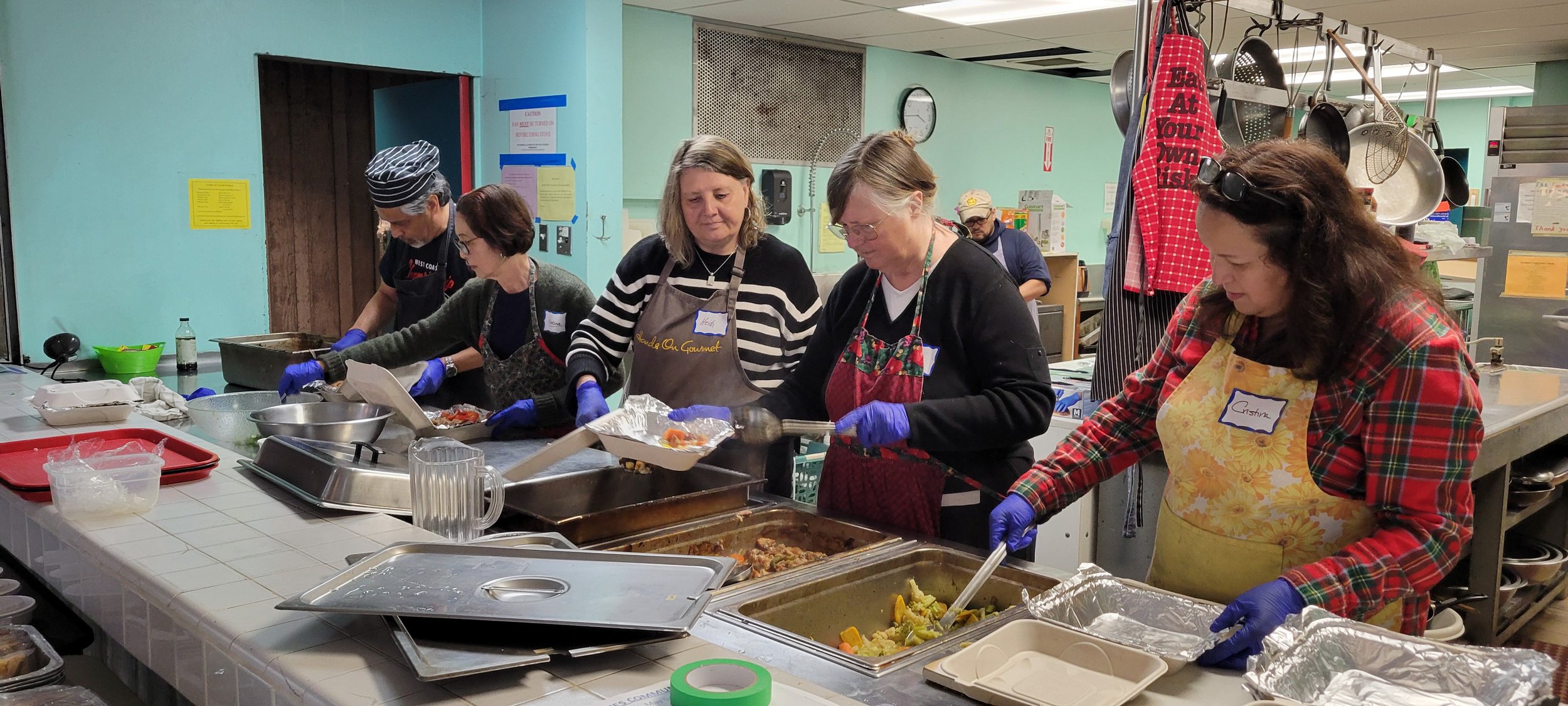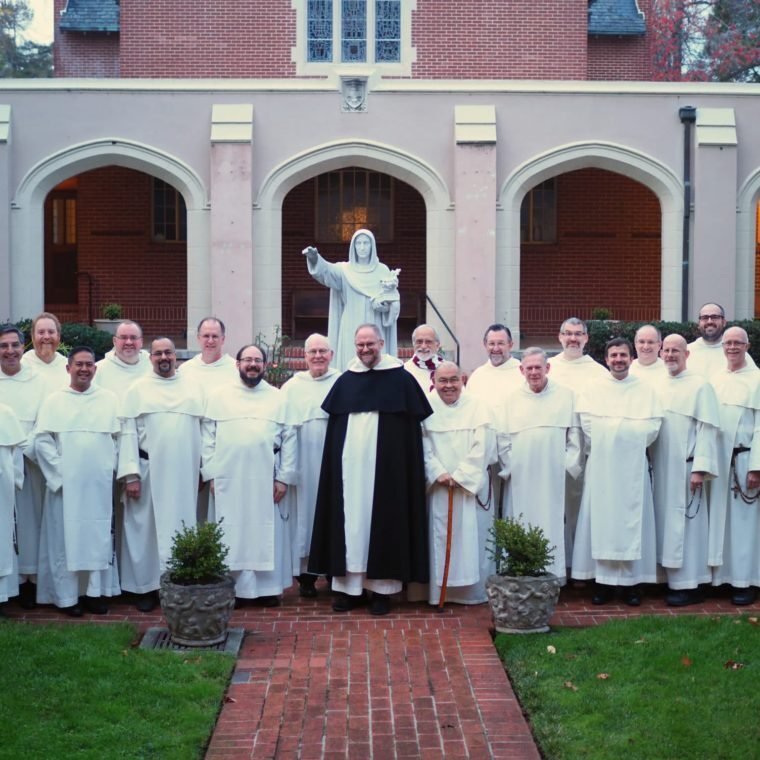It all started when...
In the late 1800s, a group of Catholic students attending the University of California at Berkeley sought to fulfill their lives with more than academia offered. They realized a desire to establish a society that would be for the social, intellectual and religious benefit of its members. In 1898, this group met three times to organize a club, but there were disagreements and the project was temporarily abandoned. On December 8th, 1899, Newman Club was established. The club was named after the English Cardinal John Henry Newman, who had achieved great prominence in the Catholic life of the 19th century
In the early years there was no chapel or meeting place. Newman Club members attended Mass at churches in Berkeley, Oakland, San Francisco and other communities. Meetings were held in members’ homes and at various halls. Social activities included dinners, teas, musicales, receptions and lectures. Women met twice a month for tea and men held a smoker twice each year.
The new club quickly received encouragement and cooperation of Archbishop Riordan of San Francisco and the pastor of the local parish, St. Joseph’s of Berkeley. Fr. John J. Cantwell, then a young curate at St. Joseph’s and later the archbishop of Los Angeles, became the first priest-chaplain of the club. The founders of the club were motivated, in the words of an early history of Newman, “to organize a society which would be for the social, intellectual and spiritual benefit of its members and representative of the Catholic Church.” The new club held regular meetings, stimulating discussions and debates, elected officers, and began to grow in significance. The major event of the year was an annual celebration of communion followed by a breakfast.
In 1907, Archbishop Riordan appointed the first Paulist to be the full-time resident chaplain to the students at the university. Fr. Thomas Verner Moore became the first of many Paulists who would serve at Newman from that day until the present. At the same time the Archbishop purchased a house and lot on Ridge Rd. on the north side of campus which would become the location of Newman Hall until the present building on Dwight Way was completed in 1967. On the occasion of his silver jubilee, Archbishop Riordan received a gift of $40,000 from the people of the archdiocese which he in turn used for the construction of Newman Hall, employing the service of the esteemed architect, Bernard Maybeck. The building was spacious, holding a chapel for about 400, a large social space, offices, a residence for two Paulists, and a bowling alley in the basement. Newman was an important place for Catholic students nourishing their spiritual, educational and social needs.
Early Proposed Newman Building
The “old” Newman Hall served for years as the focal point for the life of Catholic students and faculty at the university until the 1960’s when plans were formulated for a new and larger building on the south side of campus. The new building was constructed with funds from the Diocese of Oakland and the contributions of many friends of Newman Hall. The architect for the new, modern building was Mario Ciampi of San Francisco. A jubilant gathering of religious and academic officials joined the Newman community for the dedication of the new building on May 13, 1967, and Newman entered into the modern phase of its long history. At the same time Newman became parish of the Holy Spirit which broadened the scope of its presence in the Berkeley community.
Over the years of its history, Newman has witnessed and been involved in the enormous social and religious developments of the 20th century. The history of Newman is, in miniature, a history of our time and of the Catholic Church in America. Almost none of the great movements which made the 20th century so unique failed to find its expression at Newman Hall.
Newman quickly began to develop its own set of traditions. One tradition which still characterizes the Newman community began in those very early days-the conviction that the faith we profess has an important impact on the way we choose to live in this world. From the beginning there was an eagerness to apply Christian faith to the social and economic problems of the time. The brochure of programs for 1908 shows lectures and discussions on a variety of contemporary ethical problems, on methods of social reform, on the criminal justice system and on ethical standards in public life.
The early tradition of social awareness and involvement remained alive at Newman through the turbulent 60’s and 70’s with Newman’s involvement with the beginnings of the Catholic Interracial Council and the civil rights movement, as shown in Newman’s pride that one of its own, William Wagoner (UC graduate, 1961) was one of the early Freedom Riders in Mississippi. Newman issued an appeal for support when he was arrested in Jackson, Mississippi for his efforts. During this period, Newman also had a cultural awareness program, sponsored third world events, supported the United Farm Workers Union, and offered sanctuary to Vietnam War resisters. Newman parishioners and priests were present during the free speech movement protests at People’s Park and the protest against the Vietnam war.
Newman also had extensive social justice programs, providing shower facilities in the men’s room once a week along with weekly meals. We were active members of the ecumenical group, BOCA (Berkeley Organizing Congregations for Action), addressing social issues in Berkeley and the area. Newman has been a strong supporter of Berkeley Catholic Worker under parishioner, JC Orton, as he feeds folks in People’s Park and Berkeley City Park and cares for the houseless in the area. We have recently been active with Just Faith activities, the latest being promoting racial justice through helping churches run Bread for the World’s Racial Wealth Gap Simulation. We also participate regularly with the Good Friday protest of Livermore’s nuclear weapons programs, through the Ecumenical Peace Institute.
With diminishing volunteers, Loaves & Fishes became the main social justice activity of providing a fancy sit down waited dinner no the first Saturday of the month. Each table would have table hosts to make sure our guests felt welcomed and had their needs met. Students from Cal would often provide entertainment during the dinner. In the early 2000’s, Loaves & Fishes also provide meals one night a week at the Berkeley Women’s Shelter and one night a week at the Berkeley Men’s Shelter.
With a creative staff and parishioners, Newman was known for quite elaborate liturgies. There was long tradition of having a grand live Christmas tree in the sanctuary that was as tall as the crucifix. This was complemented by large size Advent calendars designed and sewed by Randy and Chris Dixon. Easter was known for their grand liturgies with banners hung from the high ceiling and the beauty of liturgical dance. Fr. Al introduced the 10pm Candlelight Mass that in its peak had standing room only attendance. He also introduced a live Stations of the Cross held on Good Friday. With highly talented parishioners with advance theological degrees, Newman empowered the laity with lay preaching.
In 2013, Newman invited FOCUS Missionaries to come help with campus ministry at Newman. The rise of secularism and the decline in Catholic participation, the pastor felt more could be done with campus ministry. He heard good things were being done at other campus ministries with FOCUS.
In 2014, under a new bishop, the Diocese of Oakland, considered putting Newman under non-Paulist leadership. Arrangements however were made instead to have a new Paulist pastoral team instead. The new pastoral team worked with the diocese. Paulists were helping with Masses at parishes throughout the diocese and their marriage prep workshops. Fr. Steven was one of the early members of the Bishop’s Racial Task Force in light of the Black Lives Matter movement, the George Floyd tragedy, and the need of the diocese to support black Catholics in the diocese.
With the lockdown during the COVID Pandemic in 2019 and diminished volunteers, Loaves & Fishes discontinued helping with meals at the women and men’s shelters. The 1st Saturday dinner became a takeout meal. During the post-COVID time, meals continue to be take out but tables are set up so the guests can eat at Newman or take the meal elsewhere.
During the COVID lockdown, Newman quickly provided live stream Masses. With a better understanding of the COVID virus, Newman addressed the hungers of parishioners for Jesus in the Eucharist. Communion was made available after Mass where folks needed to wear masks, sanitize their hands and be properly spaced. We later moved Mass to our patio and made Mass public. Those who were still cautious could come for adoration after Mass and receive Communion by a priest. where there were fewer people present. We did this for a year and had no reported COVID cases as a result of Mass or any gatherings at Newman. Then finally we moved Mass back to our chapel with social distancing, every other pew blocked off, and hand sanitizer everywhere along with masks provided. As of 2024, we removed the social distancing requirements and have made masks optional, though we provide masks for those who prefer using them. We have hand sanitizer dispensers throughout the chapel. During Communion, the Eucharistic Ministers wear masks for the sake of those parishioners who prefer masks and have weakened immune systems or work with those with weakened immune systems. We still only have Eucharist in one species.
Key attributes of Newman, in the late 20th century and early 21st century, include the empowerment of the laity (many of the groups are lay founded and run, much of campus ministry uses a peer-ministry model (SMT) of students ministering to students), care for the poor and needy (Loaves & Fishes, Berkeley Catholic Worker, Non-Violent Peacemaking Group, Just Faith), attentiveness to those on the margins (Women in Conversation, Refugee Committee, LBGTQ groups, etc.), evangelization (tabling and presence on campus, RCIA, FOCUS, SMT Outreach Committee), ecumenism (Cal Interfaith Council, BOCA), and the intellectual and spiritual pursuit of excellence (Faculty Dinner & Discussion, Newman Forum, Tuesday Theology, Catholicism WOW, Busy Person’s Retreat, theological book exchange library, Advent and Lenten books),
Also in 2024, the Paulist Fathers suddenly found themselves short by 3 priests to cover their ministerial commitments. Several Paulists were no longer able to serve for various reasons. Through an extensive discernment process based on various criteria for evaluating each Paulist location, the Paulist leadership discern to return ministries at RPI and UC Berkeley back to the diocese, as well as close 3 national offices for Evangelization, Reconciliation, and Ecumenism. After 117 years under Paulist leadership, Newman Hall will be under new leadership. That leadership will be with the Dominican Friars, Province of the Holy Name of Jesus.
Fr. Xavier Lavagetto, OP, current head of Catholic campus ministry at Stanford, will be taking over July 1, 2024. This ends one long chapter under the Paulist Fathers and opens a new beautiful chapter under the Dominicans. Their rich intellectual tradition and experience preaching to the ever changing culture of society, and their abundance of resources with their local theological school and priory, will make them excellent shepherds for the students and community at UC Berkeley.
Holy Spirit, we pray for your guidance and blessings on Newman Hall…









